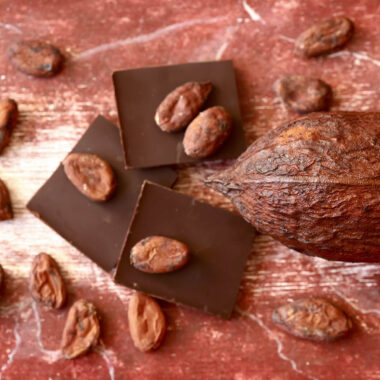Importance of Understanding Their Impact on Diabetes
For individuals managing diabetes, dietary choices play a critical role in maintaining stable blood sugar levels. Dates, due to their high natural sugar content, can significantly affect blood sugar. However, they also provide essential nutrients and fiber, which can mitigate some of the negative effects. Understanding how dates influence blood sugar levels and how to incorporate them into a diabetic-friendly diet is crucial for those looking to enjoy this fruit without compromising their health.
Can Diabetics Eat Dates?
Yes, individuals with diabetes can eat dates, but moderation is key. While dates are high in natural sugars, their fiber content helps mitigate their impact on blood sugar levels. Diabetics need to monitor their portion sizes and incorporate dates into a balanced diet.
Diabetics should be mindful of their portion sizes when consuming dates. Eating one or two dates at a time and pairing them with protein or healthy fats can help prevent blood sugar spikes.
Should diabetic consult health care provider before eating dates daily?
Before making any significant changes to their diet, individuals with diabetes should consult with their healthcare provider or a registered dietitian. These professionals can provide personalized guidance and recommendations based on individual health needs and goals.
What are the Benefits of Dates for Diabetics
Dates offer several health benefits, particularly for individuals managing diabetes. Their rich nutrient profile includes vitamins, minerals, antioxidants, and dietary fiber, all of which contribute to overall health and well-being.
- Improved Digestive Health: The high fiber content in dates aids in digestion, helping to prevent constipation and promote regular bowel movements. Good digestive health is crucial for overall metabolic health, which is important for managing diabetes.
- Enhanced Energy Levels: Dates are an excellent source of natural sugars and carbohydrates, providing a quick and sustained energy boost. This can be particularly beneficial for diabetics who need to manage their energy levels carefully.
- Cardiovascular Health: Dates are rich in potassium, magnesium, and antioxidants, which contribute to heart health. Potassium helps regulate blood pressure, while antioxidants protect against oxidative stress, a common issue in diabetics.
Understanding Carbohydrate Intake
For individuals with diabetes, managing carbohydrate intake is crucial for controlling blood sugar levels. While dates are a natural source of carbohydrates, they can still affect blood sugar levels. Diabetics need to be aware of their overall carbohydrate consumption and make informed choices about enjoying dates in their diet.
Why monitoring blood sugar Levels
Regular monitoring of blood sugar levels is essential for individuals with diabetes. This helps them understand how different foods, including dates, impact their blood sugar levels and allows for adjustments in their diet and medication as needed.
Incorporating Variety
A balanced diet is essential for overall health and well-being, especially for individuals with diabetes. While dates can be part of a healthy diet, it’s essential to incorporate a variety of foods, including fruits, vegetables, whole grains, lean proteins, and healthy fats, to ensure adequate nutrition and blood sugar control.
Mindful Eating
Diabetics should practice mindful eating when consuming dates. Instead of eating a large quantity at once, it’s best to enjoy dates in controlled portions. This helps prevent excessive spikes in blood sugar levels and promotes better blood sugar management.
Portion Size Recommendations
A typical serving size of dates is about 2-4 pieces, depending on the size and variety. It’s crucial for diabetics to be mindful of portion sizes and avoid consuming large quantities of dates in one sitting, as this can lead to rapid increases in blood sugar levels.
Pairing with Other Foods
Pairing dates with foods that are high in protein or healthy fats can help slow down the absorption of sugars into the bloodstream. This promotes better blood sugar control and reduces the risk of blood sugar spikes.
Best Practices for Incorporating Dates into a Diabetic Diet
Spread Out Consumption
Instead of consuming dates all at once, it’s best to spread out their consumption throughout the day. This helps prevent rapid increases in blood sugar levels and allows for better blood sugar control.
Use as a Natural Sweetener
Dates can be used as a natural sweetener in various recipes, such as smoothies, oatmeal, and baked goods. Using dates as a substitute for refined sugars can help reduce overall sugar intake and promote better blood sugar control.
Combine with Fiber-Rich Foods
Pairing dates with foods that are high in fiber, such as fruits, vegetables, and whole grains, can help slow down the absorption of sugars and promote better blood sugar control. This combination also provides additional nutrients and promotes overall health.
Choosing the Right Dates for Diabetes
When choosing dates for diabetes, consider their glycemic index (GI). Opt for dates with a lower GI, such as Deglet Noor, over varieties with a higher GI, such as Medjool. Lower GI foods have a less significant impact on blood sugar levels and are therefore preferable for diabetics.
Monitor Blood Sugar Response
Individuals with diabetes should monitor their blood sugar response to different types of dates and adjust their intake accordingly. Some people may find that certain varieties of dates affect their blood sugar levels differently, so it’s essential to find what works best for them.
Choose Fresh or Dried Dates
Both fresh and dried dates can be included in a diabetic diet, but it’s essential to be mindful of portion sizes, especially with dried dates, which are more concentrated in sugar. Opt for unsweetened dried dates and avoid varieties that are coated in added sugars or syrups.
Conclusion
Dates can be a delicious and nutritious addition to a diabetic-friendly diet when consumed in moderation and as part of a balanced meal plan. Their natural sweetness, coupled with their fiber, vitamins, and minerals, provides numerous health benefits for individuals managing diabetes. By incorporating dates into savory dishes, salads, and snacks, and balancing them with protein, healthy fats, and fiber-rich foods, individuals with diabetes can enjoy the sweet taste of dates without compromising their blood sugar levels. Remember to consult with a healthcare provider or registered dietitian for personalized dietary recommendations and adjustments based on individual health needs and goals.











